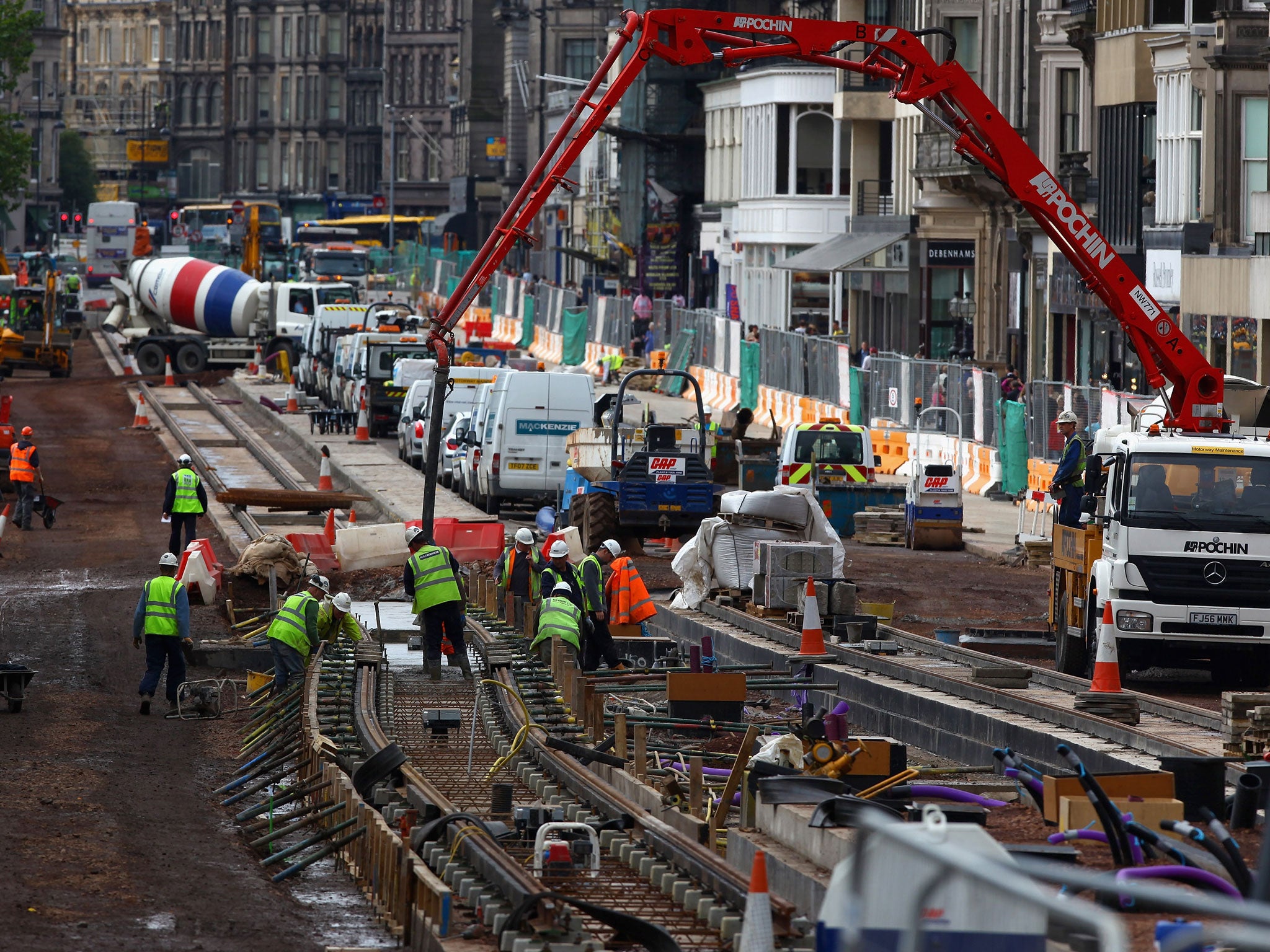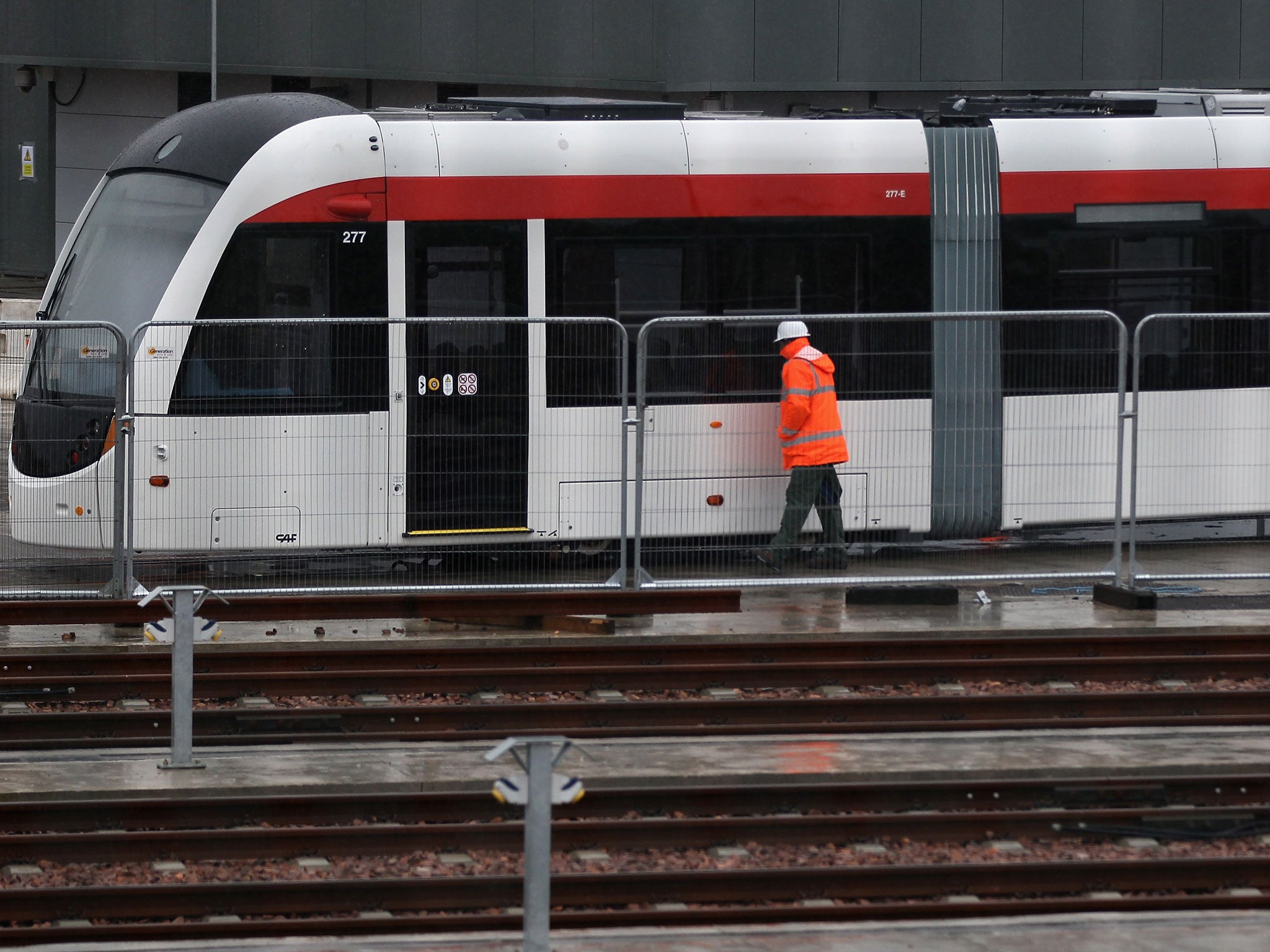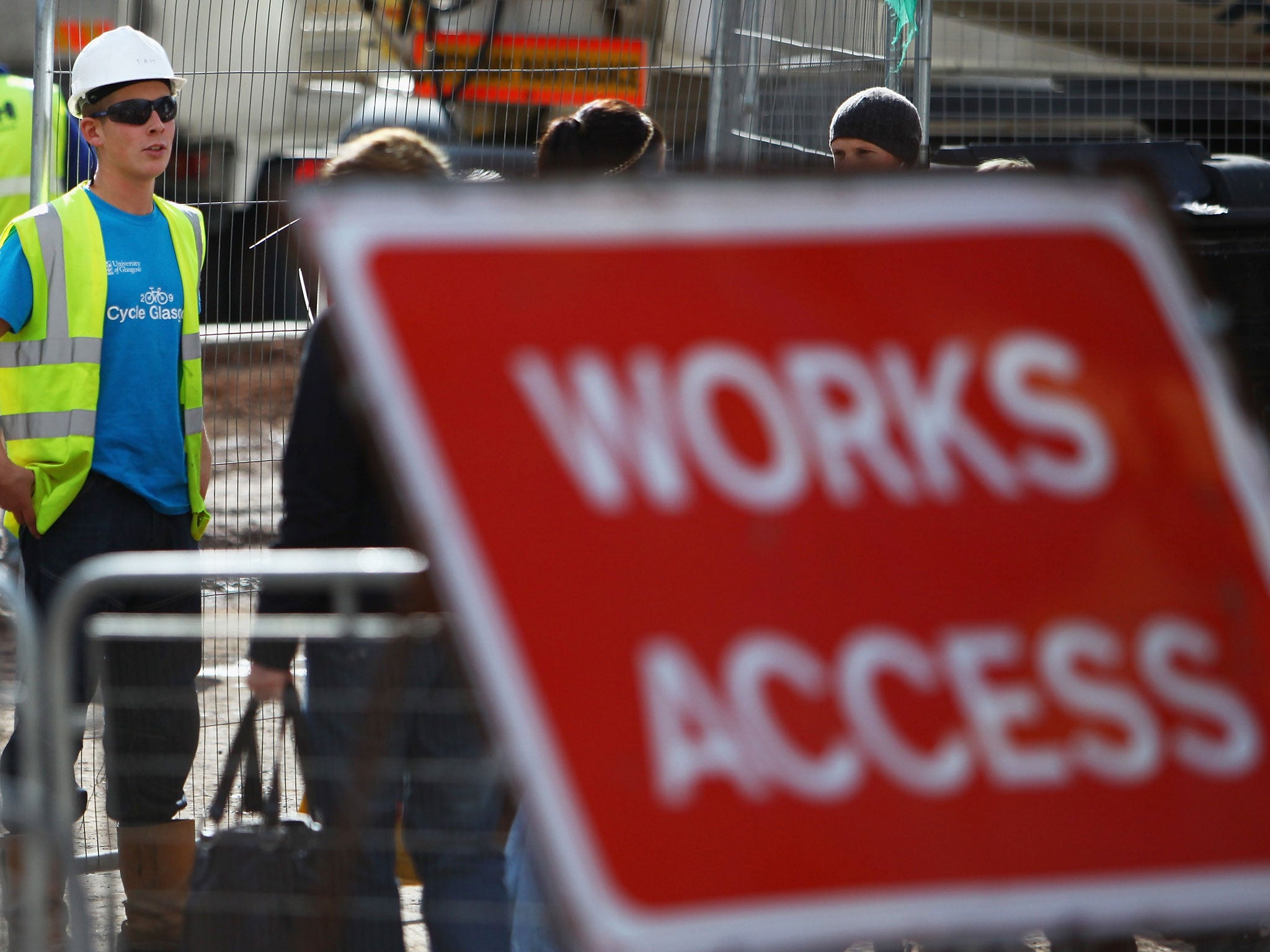Edinburgh tram post-mortem begins after project arrived years late and hundreds of millions over-budget
Beginning of the investigation into much-maligned service has been subject to a minor delay of its own

Your support helps us to tell the story
From reproductive rights to climate change to Big Tech, The Independent is on the ground when the story is developing. Whether it's investigating the financials of Elon Musk's pro-Trump PAC or producing our latest documentary, 'The A Word', which shines a light on the American women fighting for reproductive rights, we know how important it is to parse out the facts from the messaging.
At such a critical moment in US history, we need reporters on the ground. Your donation allows us to keep sending journalists to speak to both sides of the story.
The Independent is trusted by Americans across the entire political spectrum. And unlike many other quality news outlets, we choose not to lock Americans out of our reporting and analysis with paywalls. We believe quality journalism should be available to everyone, paid for by those who can afford it.
Your support makes all the difference.Edinburgh’s much-maligned trams cost hundreds of millions of pounds more than originally planned, arrived three years late and caused a seemingly never ending stream of roadworks which frequently left the city’s road users apoplectic with rage. Now, more than a year after the doors of the first service hissed open, the post-mortem has finally begun.
The Edinburgh Tram Inquiry, a judge-led investigation into what went wrong with the project, has held its first public hearing in the Scottish capital. It has already been subject to a minor delay of its own: the first session was originally scheduled for August but had to be postponed after the inquiry’s chairman, Lord Hardie, was taken ill.
When construction work first began on the trams in 2007, the City of Edinburgh Council gave the project a budget of £545m and predicted that the first services would be up and running in 2011. But after years of delays and financial disputes, the final cost was set at £776m.

This was despite the tram “network” being cut in half and now consisting of just one line with 15 stops, stretching 8.7 miles from Edinburgh Airport to the city centre. The inclusion of £200m in interest on a 30-year loan taken out by the council means the total cost could yet reach £1bn.
During the two-hour preliminary hearing, Lord Hardie – a former Lord Advocate who has been described as Scotland’s toughest judge due to his habit of handing down harsh punishments to criminals while on the bench – revealed that his team will examine six million documents as it seeks to unpick the causes of the debacle.
The main organisations involved in the tram project initially suggested that there could be up to 500 million relevant pieces of paperwork, but this number was subsequently whittled down by the inquiry team. The remaining data is being sorted with a computerised document management system.
“The technology is there to assist, but there are still vast numbers of document that have to be reviewed and analysed by members of the team,” Lord Hardie said. “This is a time-consuming but vital exercise that cannot be short-circuited if I am to carry out a thorough investigation under my terms of reference.”
Such was the level of public anger towards the project that when the trams first opened in May last year, the council’s then chief executive Sue Bruce greeted the news with the admission that the project had been a “shambles”, adding: “It’s not a day for jubilation.”

Since then they have proved popular with the public, with almost five million passengers using the route in first 12 months. But questions still remain over why the project was so poorly managed. The inquiry has no time limit and the council has already set aside £2m to cover its legal costs.
Lord Hardie said his inquiry will not consider whether the trams should have gone ahead in the first place, or determine whether anyone is legally or financially liable for the fiasco – but that it would try to establish why they “cost considerably more than originally budgeted for and delivered significantly less” than promised.
The inquiry’s final report will also provide recommendations to Scottish ministers on how similar failings can be avoided in future infrastructure projects.
At the hearing, Lord Hardie also announced the inquiry’s “core participants”, or organisations which will be expected to have a key role in the months ahead. They are the City of Edinburgh Council, Scottish ministers, contractors Bilfinger Construction UK Ltd, Carillion Utility Services Limited and Siemens plc, tram contract law firm DLA Piper Scotland LLP and designers Parsons Brinckerhoff.
Andrew Kerr, chief executive of the City of Edinburgh Council, said it was “fully committed” to helping the inquiry. “It is important to learn lessons from the past, however we are now keen to build on a successful first year for the trams and look forward to the future of the service in Edinburgh,” he added.
Marco Biagi, the Edinburgh Central MSP who has long been a critic of the project, said the start of the inquiry had been a “long time coming”, much like the trams themselves. “The people of Edinburgh rightly expect to know why we’re paying three times as much as we expected for only a third of the network we were promised,” he added. “With extensions to the tram network a possibility, the people of Edinburgh need confidence in future work.”
Join our commenting forum
Join thought-provoking conversations, follow other Independent readers and see their replies
Comments